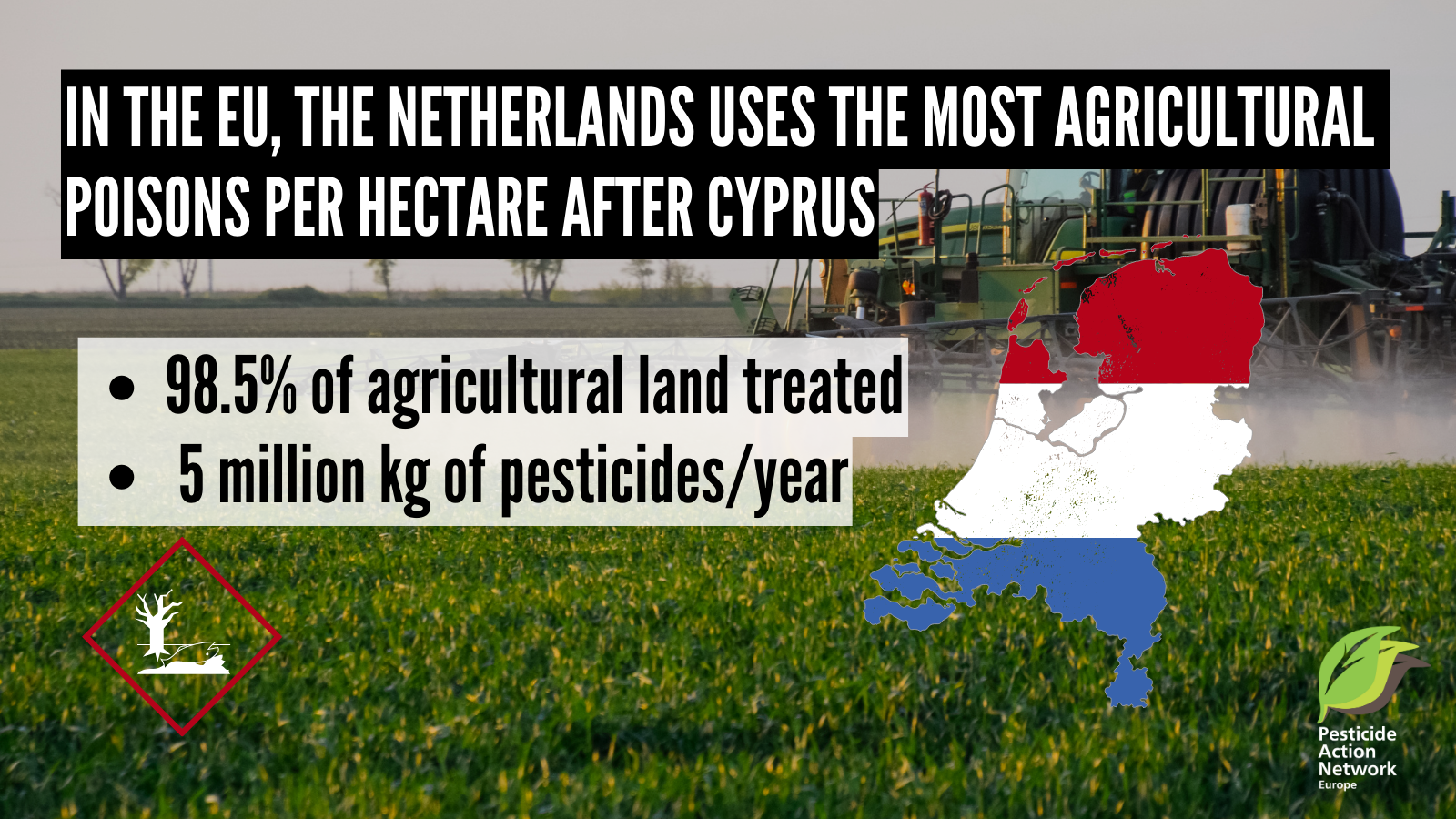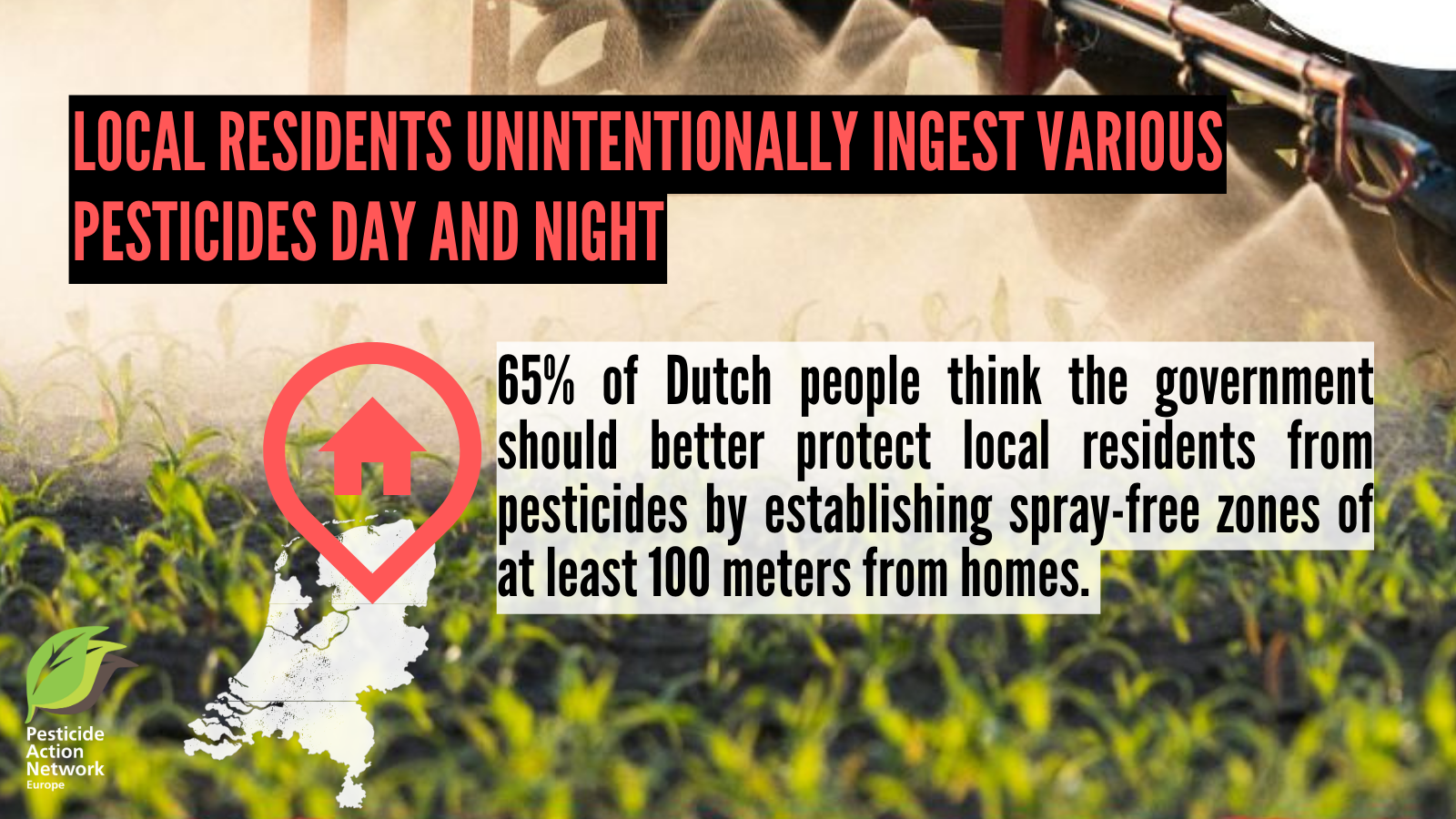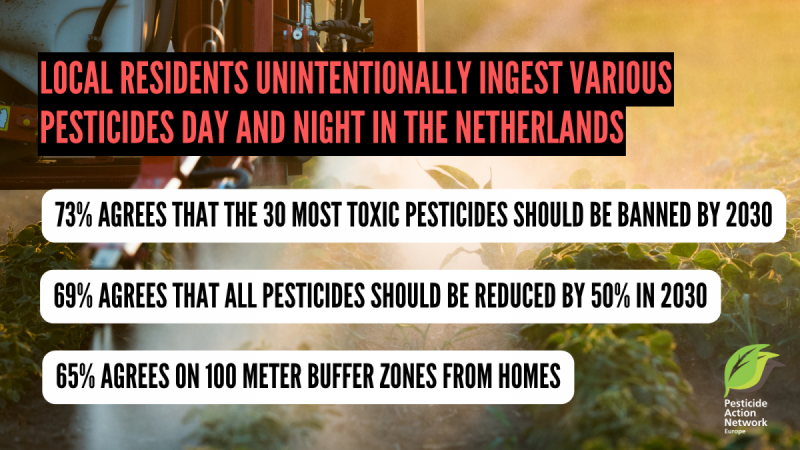A new opinion poll shows that 70% of Dutch people think that pesticide use should be reduced by 50% by 2030. The same survey shows that 73% of Dutch people think the 30 most toxic pesticides should be banned by 2030. Also, 65% think the government should better protect local residents from pesticides by establishing spray-free buffer zones of at least 100 metres from homes.
Of all European countries, the Netherlands uses the most agricultural poisons per hectare (apart from Cyprus). A total of 98.5% of agricultural land is treated with 5 million kg of pesticides every year. Many pesticides, such as insecticides or the controversial Glyphosate, kill aquatic and soil life, insects, destroy biodiversity and are linked to cancer and Parkinson's disease. More than a hundred pesticides are found everywhere due to frequent use. In soil and air, in our food, in ground and surface water, in urine, poo and even in hoovers.

Local residents including farmers' families involuntarily ingest various pesticides day and night. Around fields with lilies, for example, local residents are most at risk. Lilies are very vulnerable and are sprayed on a weekly basis with a mix of pesticides. Some 30 different types of pesticides are found in the air there. What that mix of different types of agricultural toxins causes in the human body has never been studied. 38% of Dutch people think lily cultivation should be banned in the Netherlands. Lilies do not contribute to food security, but they heavily contribute to polluting people’s health and the environment.

One of the things the Netherlands itself can do is introduce stricter rules on the use of pesticides and at the same time encourage organic farming. While all EU member states financially support the transition from regular to organic farming, the Netherlands keeps its purse strings closed. Currently only 4,5% of the Dutch agricultural area is organic.
The survey on Dutch people's views on pesticides was conducted by research firm Multiscope on behalf of Pesticide Action Network Netherlands (PAN-NL). The results can be found here.
